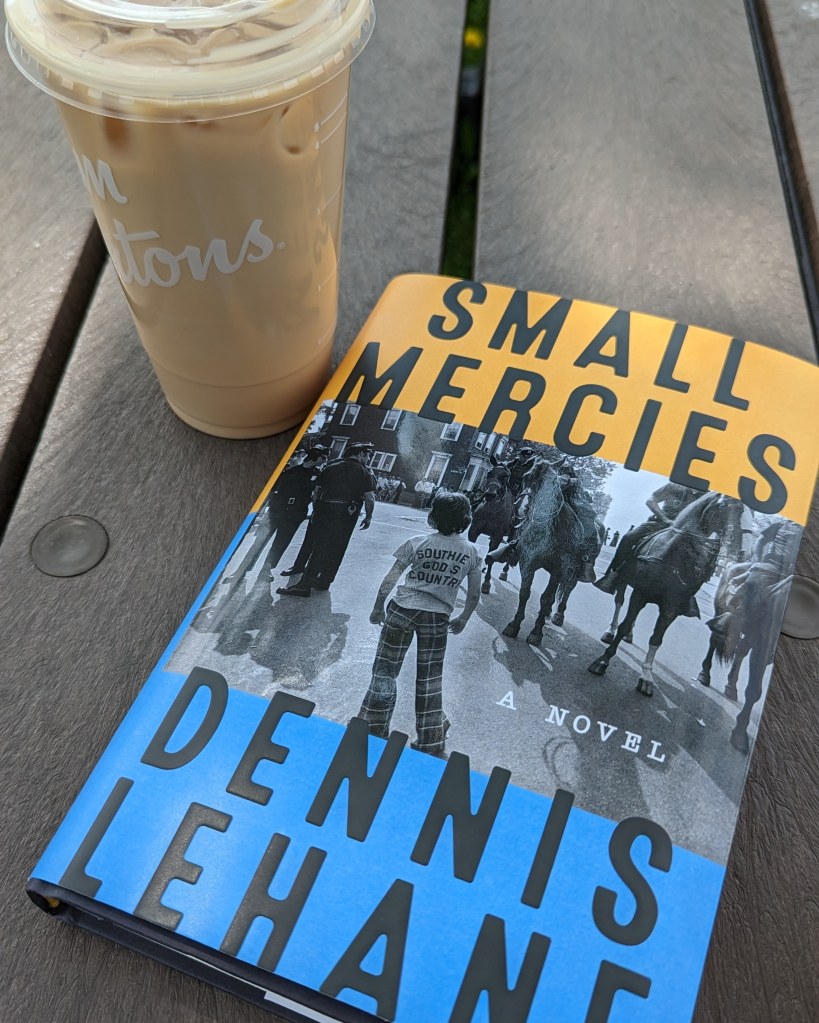
Taking place over a brutally hot summer in 1974, SMALL MERCIES follows the desegregation of schools in Southie (South Boston) and the simmering frustration and deep-seated racism held by both the parents and the children who are affected. The novel’s main protagonist, single-mother Mary Pat Fennessy, grows worried after her daughter Jules did not return home following the night a body of a young black man is found mangled on the neighborhood subway tracks. Are the two connected? Although Mary Pat is quickly warned about rattling cages in the neighborhood, she is simply unable to sit still while her daughter is missing. Can Mary Pat track down Jules or will she uncover a truth she did not want to learn?
I absolutely hated Lehane’s last book, SINCE WE FELL, so I was hoping for a return to form with SMALL MERCIES. Thankfully, I got an even greater novel than I expected. While I wouldn’t go so far as to say it has eclipsed his masterpiece – MYSTIC RIVER – I would be comfortable slotting it just below his seminal crime novel. SMALL MERCIES itself is a snapshot of the projects in the 70s (which I’m sure share many of the same qualities of those in low-income housing today) where life felt more like a struggle rather than something to be experienced. The tough living conditions often bore down on those trying to just get through each day and the school board’s plan for racial integration added another level of frustration and unease amongst the community (even if that frustration was extremely misguided).
While Mary Pat is essentially the novel’s hero, Lehane does not paint her as a perfect person; not in the slightest. The culture of the white working class communities in the Boston projects toward equally poor minorities is front and center and makes up the main plot point that drives all the characters – both good and bad – to make the decisions they do. I’d like to think we’re better today but it’s not like racism is anywhere near being eradicated in 2023. People were just more open and abrasive fifty years ago.
As events build to a head as the novel’s conclusion reaches a boiling point, the unmatched savagery of Lehane’s storytelling takes over and you’re left wondering how humans could be this cruel to one another. Sure it’s a novel, but those operating within “real-life” organized crime circles do not get as powerful as they do without the ability to go to depths most of us would consider unimaginable. If she’s going to succeed, Mary Pat also needs to climb down into the ditches to get the answers she craves, even if she may not like who she becomes to do so.
I can’t recommend this one enough and as of today, it sits firmly in the number one spot for top books of 2023. If you’re a fan of Lehane’s work, this is another solid entry from a master of Boston crime.


